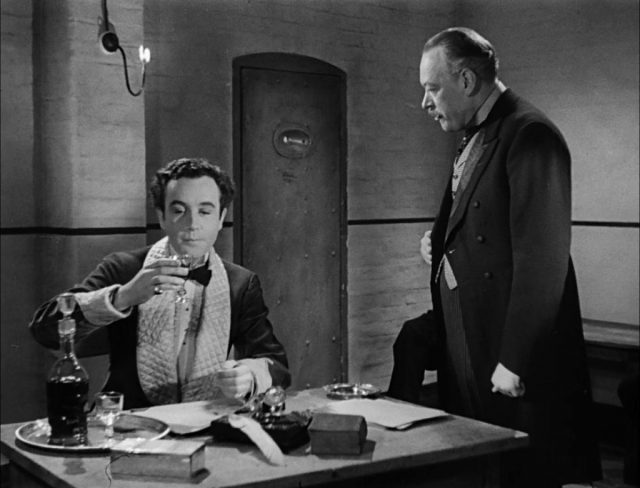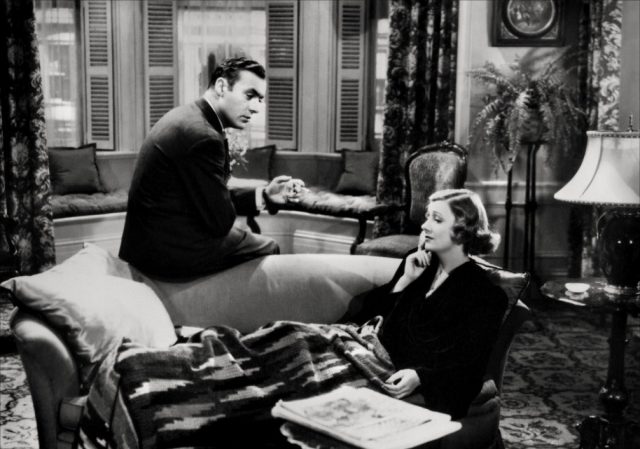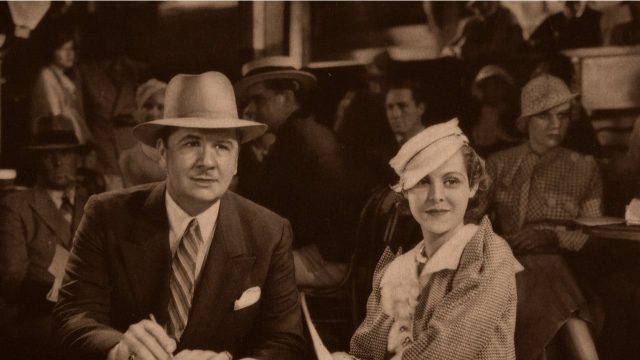TCM Classic Film Festival 2019: Part Two, by David Bax

One day, perhaps I’ll be so well-rounded a cinephile that I can spend all of TCM Fest hunting down rarities. But, until then, I will continue to occasionally use it as an excuse to cross some major blind spots off my film to-do list. This year, one such outing was made to see Robert Hamer’s 1949 Kind Hearts and Coronets, the first DCP screening I attended this time around. As a fan of movies in general and dark comedy in particular, I’d had the film recommended to me so often that I wasn’t particularly surprised when it delivered on every one of my expectations. Hamer’s direction and screenplay (cowritten with John Dighton) work together with the cast like a troupe of elite ballet dancers. There’s no light between them, no place where the outside can get in (speaking of light, the cinematography is by Douglas Slocombe, who shot, among other things, the original Indiana Jones trilogy). The story is both straightforward (a low-ranking noble murders his way up the chain of succession to a dukedom) and baroque, as the movie winkingly takes on Louis’ (Dennis Price) pretensions and flowery affectations. The only thing that breaks the spell is a jarring but, I suppose, period-appropriate use of the n-word, which only appears in the UK version that was screened.
Does it include a nightclub/lounge singer? God, no, these stuffy aristocrats may kill but they would never do anything so seedy as attend a nightclub.

As is often the case when a director remakes their own film, Leo McCarey’s second attempt, 1957’s An Affair to Remember, is better known than the original, 1939’s Love Affair. For someone my age, that probably has a lot to do with Sleepless in Seattle, which also played the festival this year. Films at TCM Fest are often introduced by TCM hosts or celebrities and Dana Delaney, who spoke before this one, says she prefers the earlier version. And I’m not one to argue with Dana Delaney. Especially when her argument boils down to chemistry, something stars Irene Dunne and Charles Boyer have in such abundance, it practically makes the film feel like 3D. Dunne and Boyer play too people who are engaged, but not to one another, who meet on a cross-Atlantic ocean liner, immediately fall for each other and, upon arrival in New York, vow to meet at the top of the Empire State Building in six months if their feelings haven’t subsided. But Terry (Dunne) gets hit by a car on her way to the rendezvous and refuses to try to connect with Michel (Boyer) until she learns to walk again (the film’s ableist undercurrents are the only major weak point). The screenplay, by Delmer Daves and Donald Ogden Stewart, is full of witty banter, much of it about the indignities of fame, and yet so much of the movie’s power, including the overwhelmingly beautiful finale, lies in non-verbal strokes. When they disembark, for instance, Michel’s fiancee meets him as he gets off the ship and then Terry must literally come between them to exit the gangplank. Love Affair is a witty and touching romance with a better head on its shoulders than most such movies. What remake?
Does it include a nightclub/lounge singer? Yes, indeed. When Terry leaves her fiance, she makes ends meet by getting a job singing in a ritzy club.

Look, it’s not like every single pre-Code movie was boiling over with sex, violence and vaporous morality. But sometimes you get one that’s exactly that. Take Rowland Brown’s Blood Money from 1933. Here you have a story of a bail bondsman, serendipitously named Bill Bailey (George Bancroft), who prays on the poor families of criminals and is friendly with the Los Angeles underworld big shots. His best friend and sorta paramour, awesomely named Ruby Darling (Judith Anderson), runs a nightclub. Her brother, Drury (Chick Chandler), is a professional bank robber. Through him, Bill meets Elaine Talbart (Frances Dee), a kleptomaniac heiress who also happens to be a masochist whose dream guy is a violent criminal who will beat her up and treat her like dirt. The whole thing (but especially Dee’s character; holy cow!) is, as the kids on Twitter say way too often, wild. It’s not just a collection of squalid characters and situations, though. There’s a ripping good yarn about the manipulation of the cash bail system and the middle ground between criminals and the law that bail bondsmen occupy. Plus Bill and Ruby’s relationship is more nuanced and layered than it perhaps would have been had some neutered version of this story been made a few years later. You probably also wouldn’t have heard Bill’s bold distinction between liberals and conservatives on the subject of vice. But you might have still heard the line that got the biggest laugh, “He’s not in to you,” which played differently than intended but still worked.
Does it include a nightclub/lounge singer? Yeah. Not from a main character but it takes place largely at a nightclub.






























